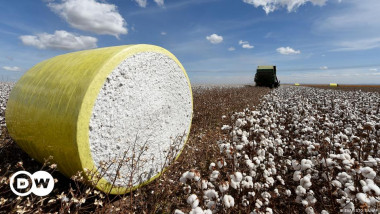Fashion giants linked to deforestation in Brazil
Major brands like Zara and H&M sell garments produced with cotton from Brazilian farms. These have been linked to deforestation and land grabbing, according to a new investigation
Before they reach the display windows of fashion giants like Zara and H&M, cotton pants, shorts, shirts and socks leave behind a trail of deforestation, land grabbing and human rights violations in Brazil. Though many of them carry a sustainable production label, a yearlong investigation by UK-based NGO Earthsight detailed the connection between crops in Brazil, the world’s fourth largest cotton producer, and European brands. Earthsight analyzed satellite images, shipping records, public archives and visited producing regions to track the journey taken by 816,000 tons of cotton.
According to the report, this raw material was produced specifically for eight Asian companies which, between 2014 and 2023, manufactured around 250 million retail items. Many of them, the investigation claims, supplied brands such as H&M and Zara, among others.
“It’s shocking to see these links between very recognizable global brands that apparently don’t make enough effort to have control over these supply chains. To know where the cotton comes from and what kind of impact it causes,” Rubens Carvalho, head of deforestation research at Earthsight, told DW.
